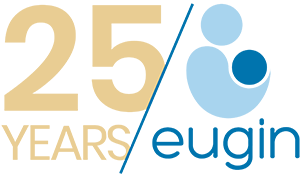Reproductive genetics
Different studies estimate that between 2-3% of non-consanguineous couples are at risk of having children with severe genetic diseases. This is because all human beings carry pathogenic variants in genes associated with recessively inherited genetic diseases, that is, people who carry abnormal genes that can cause diseases in their offspring.
In recent decades, genetic studies in the field of assisted human reproduction have allowed progress to be made in the assessment of genetic risk, both in patients affected by genetic diseases, in patients with no personal history and in their relatives.
This information will enable us to use the available laboratory tools, such as pre-implantation genetic diagnosis, in order to avoid a birth affected by the genetic diseases that are detected. This is regardless of whether conception occurs naturally or through assisted reproduction techniques.
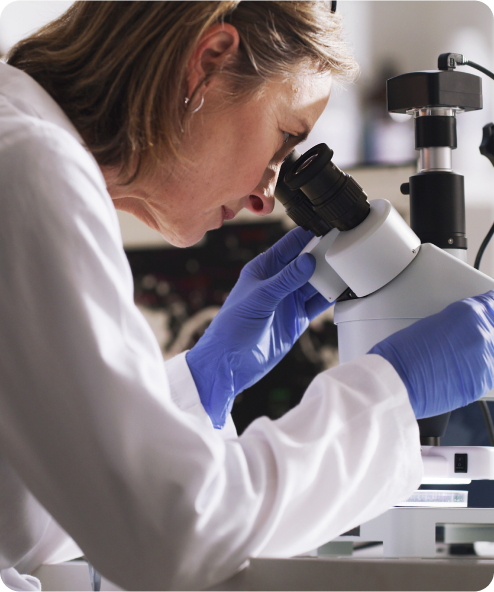
What does reproductive genetics prevent and assess?
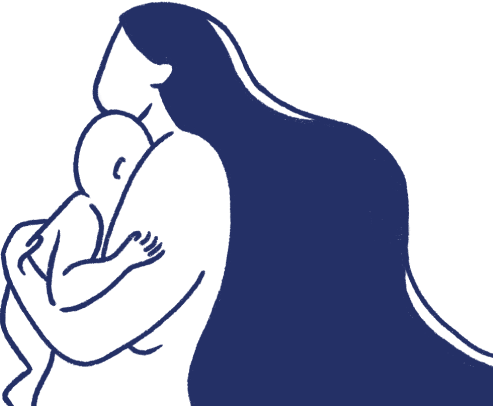
Nowadays, when a patient or couple presents genetic diseases or has relatives who are carriers, or one of their children has been born with a hereditary disease, the appropriate genetic diagnostic studies are carried out to try to establish the genetic cause. Once the cause has been established, we will be in a position to conduct a genetic study on the embryos in order to select the healthy embryos.
When a patient or couple has no history of hereditary diseases, they are offered the possibility of undergoing a carrier screening genetic study, which will allow us to evaluate the risk of their offspring presenting serious genetic diseases with autosomal recessive inheritance or linked to the X chromosome, in other words, the reproductive risk.
Using a simple test such as carrier screening, which analyses hundreds of genes, it is possible to find out whether the progenitors are carriers of a mutation in the genes being studied and so the risk of passing on one of these diseases to their future children will be revealed.
At Eugin, as many as 80% of the patients who undergo this genetic study are found to carry a mutation related to one of the genetic diseases studied. This means that they will never develop the disease, but that, depending on whether or not their partner or gamete donors carry a mutation in the same gene, their offspring may develop the disease.
Thus, according to different studies, it would be possible to prevent up to six babies out of every 1,000 births from being affected by a serious genetic disease.
What is an inherited genetic disease?
Genetic diseases occur due to mutations in the genetic material (DNA) and are normally transmitted from parents to children. However, some of them are caused by the spontaneous mutation of a gene in the embryo without the need for the parents to be carriers, known as “de novo” mutations.
Genetic diseases with autosomal recessive inheritance and linked to the X chromosome are generally considered “rare diseases” because of their low individual frequency, but as a whole, they affect millions of people worldwide and represent a public health problem. They include cystic fibrosis, sickle cell anaemia, thalassaemias, sensorineural deafness and spinal muscular atrophy.


Who are carrier genetic studies suitable for?
Usually, people who seek genetic counselling are those with a personal or family history of congenital anomalies, rare diseases or any known hereditary disease. However, genetic carrier screening studies would be suitable for anyone wishing to have children.
Any individual or couple with a wish to become pregnant would be a candidate for a preconception visit in order to assess their reproductive risk.

What services does reproductive genetics offer?
Eugin’s Reproductive Genetics Unit sees patients with a personal or family history of congenital anomalies, developmental delays, rare diseases or any hereditary disease requiring assessment.
In the first phase, all the information is collected from both the individual and the family and, if necessary, genetic studies are proposed for diagnostic confirmation. In the second stage, the results obtained are interpreted and the implications of the genetic findings are assessed. Finally, we proceed to genetic counselling and assessment of the different reproductive options in order to minimise risks to the offspring are carried out.
On the other hand, this unit also receives patients with no personal or family history of genetic disease who are interested in knowing their carrier status or the risk of transmitting genetic diseases to their offspring. For this purpose, during a preconception visit, they are informed about the genetic carrier screening study and the information that can be extracted from it to assess their risk of passing on diseases to their offspring.
Genetic study for carrier screening
Genetic carrier screening is a test that detects thousands of mutations related to hundreds of serious genetic diseases that respond to autosomal recessive or X-linked inheritance, such as cystic fibrosis, spinal muscular atrophy, sensorineural deafness, thalassaemia or sickle cell disease, among others.
An important thing to bear in mind is that this test is intended for healthy individuals and is not designed to diagnose a disease, but rather to detect individuals with mutations that can be passed on to offspring.
At Eugin, we also systematically implement it in the study and selection process of our egg and sperm donors. In fact, we were the first assisted reproduction centre in Spain to apply a rare disease screening test on our donors.
This test can be performed using a blood or saliva sample, and the results are usually available after 3-4 weeks. After the results are available, a genetic counselling visit will take place and if a high reproductive risk is confirmed, different reproductive options can be offered, such as in vitro fertilisation treatments with pre-implantation genetic diagnosis or treatments involving egg or sperm donors.
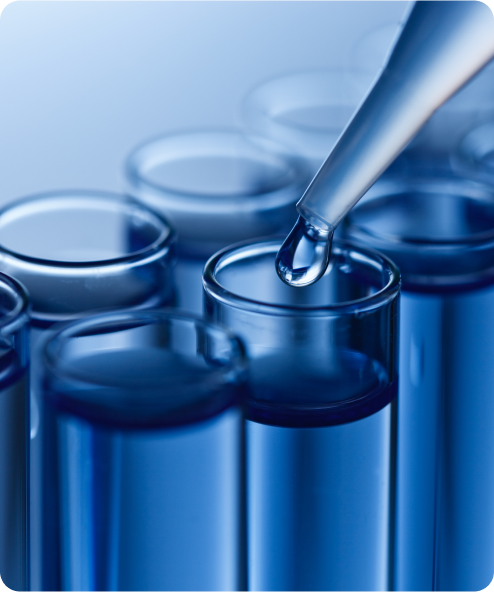
Genetic screening in egg donation and sperm donation treatments

At Eugin, all egg donors and sperm donors undergo strict medical check-ups and genetic tests to detect whether they are carriers of any genetic disease. In assisted reproduction treatments using donor eggs, we offer the possibility of comparing the results between patient and donor. This comparison of the results of the genetic studies for carrier screening between patient and donor is what we call genetic matching.
If we find that both gametes have a mutation in the same gene, we will consider this pairing to be invalid and will look for a new donor, repeating the process until we find the right candidate. In this way, we reduce the possibility of the future baby developing some of the more than 300 hereditary genetic diseases analysed.
In double donation treatments, when using donor eggs and sperm, we will ensure that both donors do not share mutations in the same gene included in the study.
Medical team specialised in Reproductive Genetics
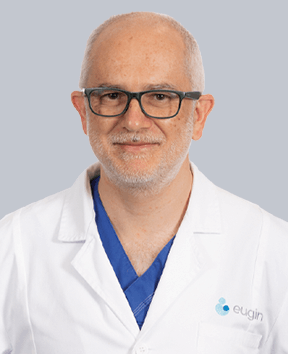




- Graduate in Medicine from the University of Barcelona.
- Specialist in Obstetrics and Gynaecology from the University of Barcelona and the Hospital Sant Joan de Déu in Barcelona.
- Coordinator for Medical Genetics and Eugin's egg donation prorgamme, Eudona.
- Coordinator of the Endocrinology, Gynaecology and Reproduction Section at the Catalan Society of Obstetrics and Gynaecology, which belongs to the Academy of Medical and Health Sciences of Catalonia and the Balearic Islands.
- Coordinator of the Gamete and Embryo Donation Working Group for the Spanish Fertility Society.
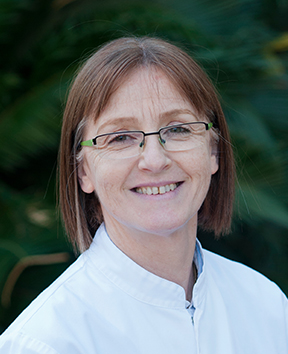


- Graduate in Medicine and Surgery from the University of Barcelona.
- PhD from the University of Barcelona, summa cum laude by unanimous decision.
- Accreditation in Genetics by the Spanish Association of Human Genetics.
- Senior geneticist at Eugin's Reproductive Genetics Unit with broad experience in genetic counselling, particularly in neurodegenerative diseases.
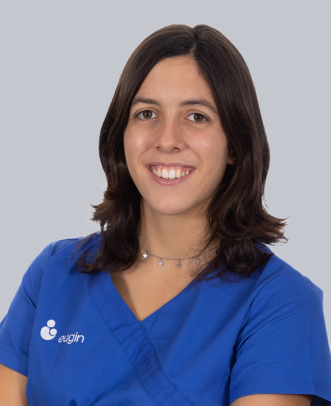




- Graduate in Genetics from the Autonomous University of Barcelona.
- Master's degree in clinical genetics from Cardenal Herrera University.
- Master's degree in clinical analysis laboratory (BIOLAC) from the Universitat Pompeu Fabra.
Find out more about reproductive genetics
Contact us if you have any queries or need more information. Our multidisciplinary team of professionals will seek the best solution based on your needs.
Pre-pregnancy diseases
Preimplantation Genetic Diagnosis (PGD) is a technique for the detection of genetic anomalies in the embryo, prior to its transfer into the woman’s uterus.
Our article on how to detect diseases before pregnancy
Preventing genetic transmission of diseases
At Eugin we are not only concerned about helping future mothers to achieve pregnancy: we are also concerned about the health of the child to be born. For this reason, we offer all our patients the possibility of undergoing a Genetic Compatibility Analysis before starting their treatment.
Come and visit us
We would be delighted to meet you in person, show you around our facilities and introduce you to our expert team. Visit us at:
Eugin Barcelona
C/ Balmes, 236
Phone: +34 933 221 122
Suppliers and professionals: +34 934 446 303
Eugin Madrid
C/ Alfonso XII 62, Pl. Baja A
Phone: +34 913 360 400
Suppliers and professionals: +34 934 446 303
